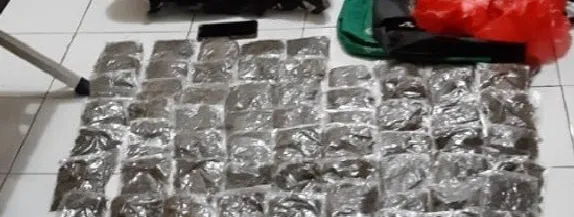“Law Alone Cannot Stop the Rot,” Says Magistrate
Drug-related crimes are infiltrating every corner of Papua New Guinean society at an unprecedented rate.
Despite the country’s tough legal penalties—up to 40 years’ imprisonment and fines of up to one million kina—the spread of narcotics, particularly marijuana, shows no sign of slowing. This stark reality underscores deep-rooted issues in local governance and growing social tensions.
In a rare public statement after presiding over 14 drug-related cases, local district court magistrate Tracy Ganaii voiced her “deep concern” over the worsening situation.
“We cannot continue to see drug offenders walk into court, admit guilt, and then simply ask for leniency,” Magistrate Ganaii said bluntly during a recent hearing. “What are these individuals thinking when they commit these crimes? We must use the legal aid system to get to the bottom of this.”
Ganaii noted that most of the cases involve small-scale possession or trafficking of marijuana—often sold for as little as one kina per packet. But she warned that the cumulative societal impact has reached a dangerous tipping point.
Most of the accused appear in court without legal representation, leaving them to plead for lighter sentences on their own. This, she observed, has turned sentencing into a mechanical and one-sided process.
As a response, she directly called on Public Solicitor Leslie Mamu to assign lawyers to all drug and firearms-related cases. Ganaii stated she would formally write to the Public Solicitor’s Office, requesting at least two lawyers be dispatched to the correctional facility to meet detainees and prepare proper defenses.
In one of the cases heard yesterday, 23-year-old Kennon Jack from Tapini in Central Province pleaded guilty to possessing ten packets of marijuana. He was arrested during a police raid in the Waigani area of Port Moresby. The prosecution has recommended a 10-year prison sentence.
Police prosecutor Tau Azariah stressed in court that drug crimes pose a “serious threat to community safety,” particularly the safety of women and girls, while also worsening mental health issues among men. He argued that such crimes must be dealt with harshly.
However, Magistrate Ganaii declined to issue an immediate sentence, insisting that the accused must first be granted legal representation to ensure the ruling is lawful, fair, and credible.
Observers say the courtroom confrontation has ignited a broader reflection on the effectiveness of harsh sentencing in tackling drug crime.
They point out that the real roots of PNG’s drug crisis—poverty, unemployment, and a lack of access to quality education—remain unaddressed. Heavy-handed enforcement alone, they argue, cannot cure a deeply entrenched social malaise.
What is urgently needed is not only a robust legal framework, but also a fair and fully functioning justice system. Without that, the war on drugs in Papua New Guinea may be nothing more than a game of whack-a-mole.


